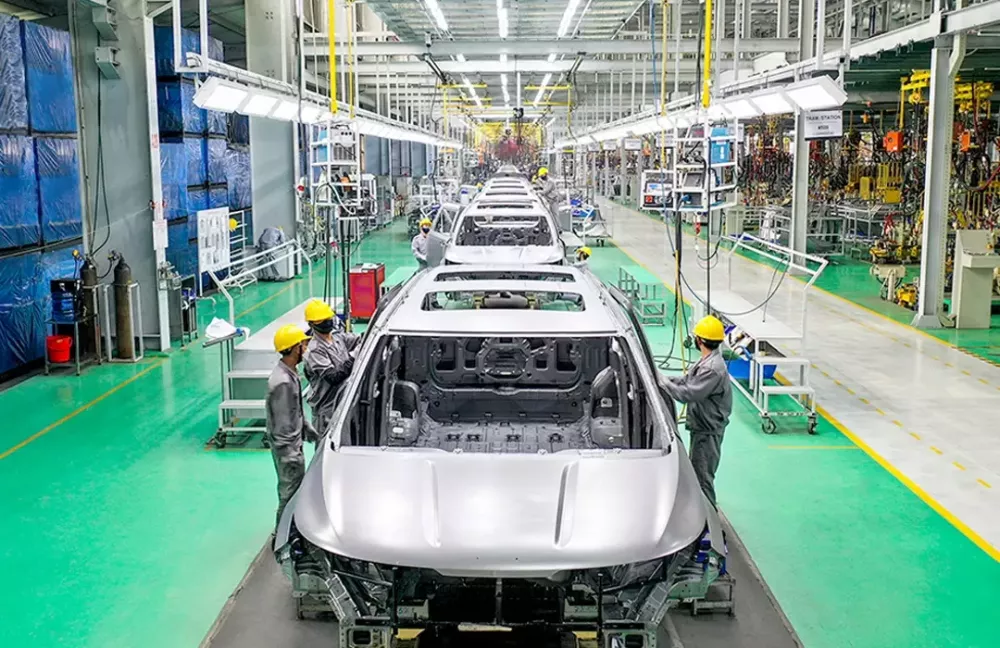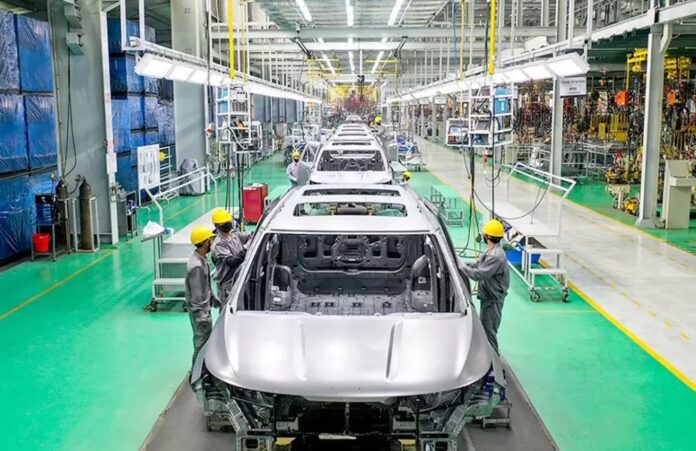During the early June National Assembly meeting, Deputy Prime Minister Tran Hong Ha stated that the government will soon issue a decree reducing registration fees for domestically produced and assembled cars. However, the implementation of this decree may be delayed by one month from the initial plan, falling around August 2024.
Previously, the Ministry of Finance had proposed incentives for domestically produced and assembled cars for a period of six months, as in the previous three times. This proposal needs to be approved by the National Assembly to take effect.

The time for reducing registration fees for domestically produced and assembled cars may be postponed until August 2024.
If the proposal is approved, this will be the fourth time that registration fees have been reduced for domestically produced and assembled cars since 2020. It is not yet clear what the reduction percentage will be this time. In all three previous instances, domestically produced and assembled cars enjoyed a 50% reduction.
The first reduction was applied in the last six months of 2020, according to Government Decree No. 70/2020/ND-CP dated June 28, 2020, to support domestic car companies in clearing inventory affected by the Covid-19 pandemic. The second reduction in registration fees for domestically produced and assembled cars was applied for six months, from December 2021 to May 2022. Meanwhile, the third round of registration fee reductions lasted from July 1 to December 31, 2023, according to Decree No. 41/2023/ND-CP, issued by the Government and signed by Deputy Prime Minister Le Minh Khai on June 28, 2023.
After the government’s preferential registration fee policy for domestically produced and assembled cars officially ended on December 31, 2023, the domestic car market experienced a decline in sales. The cause of the rather gloomy Vietnamese car market from the beginning of the year to the present is due to the impact of economic recession, high inflation, tight credit, and difficulties in real estate, securities, etc.
According to a report by the Vietnam Automobile Manufacturers Association (VAMA) and Hyundai Thanh Cong, in the first five months of 2024, domestic consumers purchased a total of 127,643 vehicles, down 7% compared to the same period in 2023. The year 2023 was also the year that the Vietnamese car market achieved the lowest sales volume in the last five years, despite the absence of Covid-19 impacts.
According to experts, the government’s policy of reducing registration fees will help the domestic car market become more vibrant in the second half of 2024 but is unlikely to return to normal levels. In the past time, a series of car companies have continuously launched large promotion programs, but purchasing power is still slow to increase.
When the decree on reducing registration fees for domestically produced and assembled cars takes effect, a number of car companies will benefit, including Hyundai, Kia, Mazda, Peugeot, Toyota, and Ford. These are all companies that assemble some models in Vietnam. Meanwhile, companies that mainly sell imported cars such as Mitsubishi, Suzuki, Nissan, and Volkswagen are expected to step up promotions to maintain competitiveness.
Honda Accord: 40 Years of Automotive Excellence
Looking at the Vietnamese car market right now and humorously comparing it, we will see Camry as a well-behaved young girl, not outstanding in every aspect but easily becoming the choice of the “other half”. Teana, on the other hand, is like a dignified and tranquil woman, full of courage. Meanwhile, Mazda6 is like a hot girl, quickly attracting and captivating anyone’s gaze from the first encounter. As for Accord – with the elegance and experiences of a U30 lady, even though she is always praised by everyone, she hides something “difficult to deal with” in the minds of the majority.














































